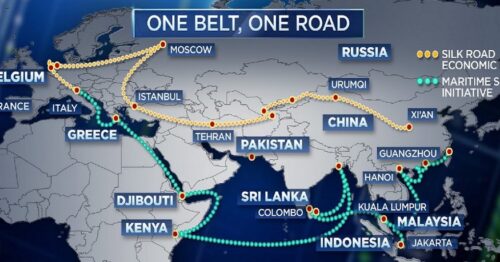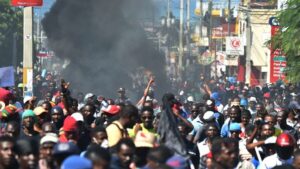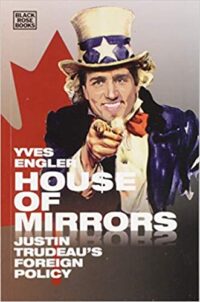 Like America, China is a republic and, like America, says it is democratic, but how democratic is China? A glance at history is always a good starting point
Like America, China is a republic and, like America, says it is democratic, but how democratic is China? A glance at history is always a good starting point
The People are supreme, the state is secondary and the Ruler is the least important: only those who please the people can rule. Mencius
In Roman politics, citizens lost control of politicians after they elected them. It’s one of the system’s greatest weaknesses and it is no wonder that, like our Roman forebears, we regard government as our biggest problem: we cannot compel them to keep their promises.
Imagine that, instead of hiring eloquent amateurs, we hired professionals–sociologists, statisticians, political scientists, economists–and told them to create solutions to our problems identified by publicly conducted surveys. Then they should support state and local governments to implement policy solutions, track public satisfaction with them for a few years and discard failed policies. California would probably try Canadian medicare and if their medical bills fell fifty percent and Californians showed a three year gain in healthy life expectancy, we’d elect a thousand volunteers and send them–all expenses paid–to Washington so they could audit the results and pass legislation.
That’s what China does and it’s why their democracy resembles Proctor & Gamble more than Pericles of Athens.
How Democratic is China–Really?
Large-scale national surveys, the Chinese Labor Dynamics Survey (Sun Yat-Sen University), the Chinese Family Panel Survey (Peking U), the Chinese General Social Survey (Renmin U), the Chinese Income Inequality Surveys (Beijing Normal U) and hundreds of polls by overseas scholars and institutions like Harvard University, Gallup, Edelman, World Values and Asian Barometer, rival the world’s best in sampling techniques, questionnaire design and quality control.
The results, all available online, are a treasure trove of democratic data that Mao created by wresting policy control from scholars and commissioning extensive surveys saying, “Public opinion must guide our actions.” Today, says author Jeff J. Brown, “My Beijing neighborhood committee and town hall are constantly putting up announcements, inviting groups of people–renters, homeowners, over seventies, women under forty, those with or without medical insurance, retirees–to answer surveys. The CPC is the world’s biggest pollster for a reason: China’s democratic ‘dictatorship of the people’ is highly engaged at the day-to-day, citizen-on-the-street level. I know, because I live in a middle class Chinese community and I question them all the time. I find their government much more responsive and democratic than the dog-and-pony shows back home, and I mean that seriously.”
Mao introduced universal suffrage in 1951 (ten years before America ) on the basis of one person, one vote. Everyone voted to elect a legislature that would control of all legislation and approve all senior appointments. He even extended democracy to non-citizens, as Quaker William Sewell , a professor at Jen Dah Christian University in Szechuan recalls,
As a labor union member, I was entitled to vote. The election of a government in China is indirect. We at Jen Dah were to vote for our local People’s Congress. Then the Local Congresses would, from among their own members, elect the Duliang Congress. From these members and from the congresses of the great cities and many counties would be elected the Szechwan People’s Provincial Congress. Finally emerged the National People’s Congress, every member of which had in the first place been elected to a local body. The National Congress made the laws, elected the Chairman, and appointed the Premier and members of the State Council. In our chemistry group we discussed the sort of men and women who might best represent us; then we put forward half a dozen names.
Each group in our Jen Dah section did the same. All the names were then written on a board so that everyone might see who had been suggested. The names which several groups had listed in common were put on a short list. They amounted to over a dozen, any groups being still at liberty to put forward again any name which they considered should not have been omitted. Those whose names were on the short list had then to be persuaded to allow their names to remain. This took some time as a genuine sense of inability to cope made many of them reluctant to undertake such responsible work. Each person was discussed at length by the group. Those who were unknown were invited to visit the various groups so that they might be questioned. At length a still shorter list of candidates was obtained, which was cut down eventually, after further discussion, to the number desired.
When the day of the election came, the flags were flying and the bands with their cymbals and drums with their constant rhythm made it all pleasantly noisy. Voting slips were handed out at one end of the booth and students, all sworn to secrecy, were available to help if you couldn’t read. Then alone, or accompanied by your helper, you sat at the table and cast your votes. The list contained names which had by now become very familiar but there was a space at the bottom for additional names to be added should you so desire. A ring was to be put around those whom you wished to be elected and the paper dropped into the box. In England I had voted for a man I didn’t know, with whom I had never spoken and who asked for my vote by a circular letter and who had lost to his rival by over 14,000 votes. I had felt that my vote was entirely worthless. In China, at this one election, I had at least had the happy illusion that my vote was of real significance.
By the 1980s the electoral process had deteriorated, powerful family clans dominated local elections and villagers regularly petitioned Beijing to send ‘a capable Party Secretary to straighten things out’. So the government invited The Carter Center to supervise the process and, by 2010, voter turnout had outstripped America’s and the Prime Minister encouraged more experiments, “The experience of many villages has proven that farmers can successfully elect village committees. If people can manage a village well, they can manage a township and a county. We must encourage people to experiment boldly and test democracy in practice.” Five years later President Xi asked the Carter Center to reevaluate the fairness of election laws and to educate candidates in ethical campaigning, “Democracy is not only defined by people’s right to vote in elections but also their right to participate in political affairs on a daily basis. Democracy is not decoration, it’s for solving people’s problems.” Like Capitalism, Democracy is a tool in China, not a religion.
There are six hundred thousand villages and successful candidates, who need not be Party members, begin their five-year terms with a trial year at the end of which, if they fail to achieve their promised goals, they’re dismissed. Otherwise they spend their second year reviewing and adjusting their objectives, knowing that their successes could be propagated nationwide.
Village representatives choose peers to represent them at district level where further voting elects county representatives until, eventually, three thousand provincial congresspeople, all volunteers, convene in Beijing and strive for consensus as earnestly as they do in their villages. Congresspeople are volunteers, ordinary citizens whose progress to the national level requires prudence and common sense. Tiered voting makes it difficult to join a higher level assembly without the support from politicians below and impossible for the Party to completely control the process. As a result, one-third of National People’s Congresspeople are not Communist Party members, nor are other parties merely decorative. Parties like the China Democratic League, the Kuomintang and the Jiusan Society (whose all-PhD members campaign for climate initiatives, increased R&D budgets and data-driven health policies) regularly produce outstanding Ministers.
Is China’s Constitution Democratic?
The Constitution is clear: “The National People’s Congress and the local people’s congresses at various levels are constituted through democratic elections. They are responsible to the people and subject to their supervision. All administrative, judicial and procuratorial organs of the State are created by the People’s Congresses to which they are responsible and by which they are supervised.” Most legislation receives ninety-percent support in Congress but does this make the NPCC a mere ‘rubber stamp’ as critics claim?
The ‘rubber stamp’ misunderstanding arises because policy development is managed like double-blind, randomized clinical trials, called Trial Spots, and Congress is primarily responsible for publicly evaluating data gathered on them. Europe has started universal income trial spots but China has been doing them for thirty years and has a mature system to support it and manage it.
It’s not hard to must ninety-percent support if the data is sound. Policy proposals are first tried in villages, towns or cities and the vast majority die during this phase for the same reasons that most scientific experiments fail. The process has created the most trusted government on earth but Congress is no pushover. Congresspeople visit, inspect and audit Trial Spot cashflows, calculate affordability and debate scalability and national impact.
When, after thirty years of engineering studies, the government presented its proposal to fund the Three Gorges Dam, Congress demurred. The project’s cost and scale were beyond most members’ imagination, retired engineers and foreign experts damned it and a million people who would be displaced criticized the project so vehemently that legislators demanded a similar dam be built nearby to demonstrate geological stability. The government duly built the Gezhouba Dam downstream yet, when they re-presented the funding request, just sixty-four percent of delegates supported it and, when the government decided to proceed, people loudly accused it of ‘ramming the bill through.’
Though China’s process is neither fully scientific nor totally democratic, labeling it ‘authoritarian’–a Western concept–also misses the point. China’s reliance on data for course corrections is its greatest strength, though even solid data does not guarantee smooth sailing. Fifty percent of legislation is not passed within the planned period and ten percent takes more than a decade, thanks to the Peoples Consultive Congress, a gigantic lobby of special interest groups–including peasants, indigenes, professors, fishermen, manufacturers and Taiwan’s Kuomintang Party–who ensure that pending legislation does not damage their interests. Legislators must use both trial data and political tradeoffs to craft the laws which, by the time they emerge, have almost unanimous support. Even then, legislation is issued ‘subject to revision’ because data collection continues after implementation, too.
Congress commissioned the Guangzhou-Shenzhen high speed rail Trial Spot in 1998 before voting to fund today’s massive HSR network. In 2016 the administration advanced legislation permitting genetically modified food crops because they had promised that GM maize and soybeans would be in commercial use by 2020. Two years later–after an intense public education campaign–a survey found half the country still opposed to GM, ten percent were supportive and eleven percent considered GM ‘a bioterrorism weapon aimed at China’. Legislation was shelved. Venture capitalist Robin Daverman describes the process at the national level:
China is a giant trial portfolio with millions of trials going on everywhere. Today, innovations in everything from healthcare to poverty reduction, education, energy, trade and transportation are being trialled in different communities. Every one of China’s 662 cities is experimenting: Shanghai with free trade zones, Guizhou with poverty reduction, twenty-three cities with education reforms, Northeastern provinces with SOE reform: pilot schools, pilot cities, pilot hospitals, pilot markets, pilot everything. Mayors and governors, the Primary Investigators, share their ‘lab results’ at the Central Party School and publish them in their ‘scientific journals,’ the State-owned newspapers.
Beginning in small towns, major policies undergo ‘clinical trials’ that generate and analyze test data. If the stats look good, they’ll add test sites and do long-term follow-ups. They test and tweak for 10-30 years then ask the 3,000-member People’s Congress to review the data and authorize national trials in three major provinces. If a national trial is successful the State Council [the Brains Trust] polishes the plan and takes it back to Congress for a final vote. It’s very transparent and, if your data is better than mine, your bill gets passed and mine doesn’t. Congress’ votes are nearly unanimous because the legislation is backed by reams of data. This allows China to accomplish a great deal in a short time, because your winning solution will be quickly propagated throughout the country, you’ll be a front page hero, invited to high-level meetings in Beijing and promoted. As you can imagine, the competition to solve problems is intense. Local government has a great deal of freedom to try their own things as long as they have the support of the local people. Everything from bare-knuckled liberalism to straight communism has been tried by various villages and small towns.
Yiwu, a sleepy town in the middle of Zhejiang province, started an international trade Trial Spot in the 1980s and became the world’s center for small commodities like stuffed animals (and the subject of endless books and articles). Today, townships are running Trial Spots on smart towns, schools ran Trial Spots on academic quality, labor unions ran labor rights Trial Spots, state-owned enterprises trialed mixed compensation (cash and stock) and maverick officials tried ideas knowing that any damage would be contained and successes quickly replicated. Even the conservative Chinese Customs had ‘trade facilitation Trial Spots’ at border crossings.
The Health Ministry asked thirty-three Provincial Health Ministers–PhDs and MDs–to bring childhood obesity under control by 2030. The ministers involved a thousand County Health Directors and today hundreds of Childhood Obesity Awareness Trial Spots are running in cities and townships across the country. One billboard warns, rather dubiously, that obesity reduces children’s intelligence but wheat and chaff will be separated by 2030 and overweight children will become as rare as they were when we were young. Overall, the process keeps the government in sync with people’s wishes better than any on earth:
Every five years since 1950, planners have readjusted the nation’s course towards the country’s ultimate goal of dàtóng, issued progress reports and gathered feedback. Results encouraged them to allow entrepreneurs to compete in non-essential industries like automobile manufacturing but showed that profits on essential services were as burdensome as taxes. Profiting from healthcare, they found, taxed every business needing healthy workers, and profits from education taxed every businesses that needs literate workers. The government now provides them at cost and even supports loss-making corporations (‘zombies’ to neoliberals) that serve a social purpose.
Are China’s Five Year Plans Democratic?
Researchers begin Five Year Plans with questionnaires and grassroots forums and, after mid-term assessments, Congress commissions scholars to evaluate and economists to budget for their recommendations. Teams then tour the country, appear on local TV, listen to local opinions and formulate proposals. One planner explained, “Computers have made huge improvements in collecting and analyzing the information but still, thousands of statisticians, actuaries, database experts and technicians with degrees in urban, rural, agricultural, environmental and economic planning invest thousands of hours interpreting and analyzing this vast trove of data, statistics and information. Needless to say, for a continent-sized country with over a billion citizens, it takes hundreds of thousands of people to develop each Five-Year Plan.”
Next, the State Council publishes a draft Plan and solicits input from employees, farmers, businessmen, entrepreneurs, officials and specialists and feasibility reports from all twenty-seven levels of the bureaucracy responsible for implementing it. The Finance and Economics Committee analyzes the Plan’s budget and, after the State Council and Politburo sign off, Congress votes. Then discussion is suspended and implementation proceeds unimpeded. Here’s the cover sheet for the 12th Plan:

Over the five years, economic growth averaged 7.8%, services became the largest sector and consumption became the major growth driver, energy intensity fell eighteen percent and emissions dropped twelve percent, the urban-rural income gap narrowed, rudimentary health insurance became universal, three hundred million folk gained access to safe drinking water and one hundred million were lifted from poverty. Harvard’s Tony Saich, who conducts his own surveys, concludes that ninety per cent of people are satisfied with the government and surveys found that eighty-three percent think it runs the country for everyone’s benefit rather than for special groups. More remarkably, it’s run parsimoniously:

The current administration has promised to further extend democratic rule of law as education levels rise but there has been another, less formal democracy at work for three thousand years. Any citizen can petition the government with a demand or complaint. Historically at any time but especially now, when Congress is meeting with the Peoples Consultative Congress, thousands of insistent constituents appear on their doorsteps with written petitions. Protocol requires them to start at the neighborhood level then, if they are still dissatisfied, go to the next level, all the way to the NPC if needed. In fact, there is a special office, the State Bureau for Letters and Calls, where everyone, even resident non-citizens, can lodge petitions.
Legislation, once published in newspapers and posted on neighborhood bulletin boards, now blossoms online. Every draft is posted for citizens, non-citizens, national and international businesses alike to comment and critique–and they do. If there is strong pushback or resistance to proposed laws they’re sent back for amendment. And if that is too cumbersome there is the constitutional right to demonstrate publicly.
Today, smartphones, social media and streaming video to multiply the effects of public demonstrations (as 150,000 ‘mass incidents’ in 2018 testify). Rowdy protests–usually triggered by local officials’ unfairness, dishonesty or incompetence–are cheap, exciting and safe since police are unarmed. Indignant citizens paint signs, alert NGOs and the media, recruit neighbors, bang drums, shout slogans and livestream their parade. Responses which once took months now take hours. Targeted officials–usually after a phone call from an angry superior–speed to the scene, bow deeply, apologize profusely, kiss babies, explain that they had no idea that such things were going on and promise brighter tomorrows. Since cell phones became ubiquitous local officials’ approval has risen from forty-five to fifty-five percent and, by 2025, should rival Americans’ seventy percent.
From land redistribution in the 1950s to communes in the 60s to the Great Leap Forward, the Cultural Revolution, Reform and Opening and anti-corruption, Chinese politics are almost unrecognizable from one decade to the next yet policy support rivals Switzerland’s. Tsinghua Professor Daniel Bell credits democracy at the bottom, experiments in the middle and meritocracy at the top for a string of policy successes. And the New York Times’ Tom Friedman says wistfully, “If we could just be China for one day we could actually authorize the right decisions.”
Former President Hu Jintao, who formalized Trial Spots, wisely observed that there’s more to China’s democratic process than meets the eye, “Taking from each according his ability and giving to each according to his need requires democratic rule of law, fairness and justice, honesty and fraternity, abundant energy, stability, orderliness, harmony between people and the environment and sustainable development.”
Words to ponder.
Godfree Roberts, Ed.D. Education & Geopolitics, University of Massachusetts, Amherst (1973), currently residing in Chiang Mai, Thailand is the author of
Why China Leads the World: Talent at the Top, Data in the Middle, Democracy at the Bottom (2021). His expertise covers many areas, from history, politics and economics of Asian countries, chiefly China, to questions relating to technology and even retirement in Thailand, a topic of special interests for many would-be Western expats interested in relocating to places where a modest income can still assure a decent standard of living and medical care.
Read other articles by Godfree.
This article was posted on Saturday, February 20th, 2021 at 10:35am and is filed under China, Democracy, Legal/Constitutional.
This post was originally published on Radio Free.












 (@OwenJones84)
(@OwenJones84) 


